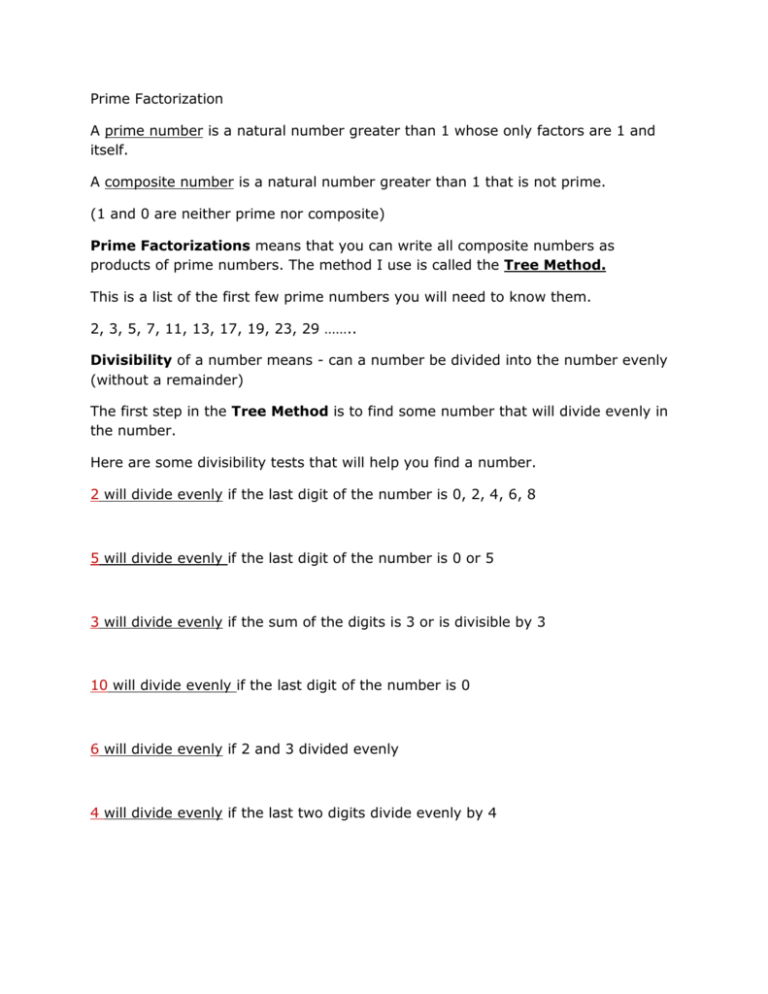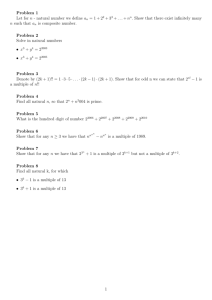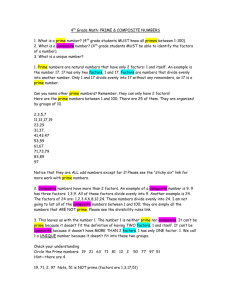Prime Factorization A prime number is a natural number
advertisement

Prime Factorization A prime number is a natural number greater than 1 whose only factors are 1 and itself. A composite number is a natural number greater than 1 that is not prime. (1 and 0 are neither prime nor composite) Prime Factorizations means that you can write all composite numbers as products of prime numbers. The method I use is called the Tree Method. This is a list of the first few prime numbers you will need to know them. 2, 3, 5, 7, 11, 13, 17, 19, 23, 29 …….. Divisibility of a number means - can a number be divided into the number evenly (without a remainder) The first step in the Tree Method is to find some number that will divide evenly in the number. Here are some divisibility tests that will help you find a number. 2 will divide evenly if the last digit of the number is 0, 2, 4, 6, 8 5 will divide evenly if the last digit of the number is 0 or 5 3 will divide evenly if the sum of the digits is 3 or is divisible by 3 10 will divide evenly if the last digit of the number is 0 6 will divide evenly if 2 and 3 divided evenly 4 will divide evenly if the last two digits divide evenly by 4






